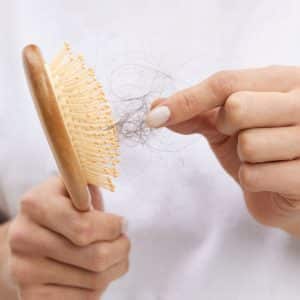 WhatsApp
WhatsApp
The most important reason why this research is needed is that the hair of cancer patients falls out during treatment. But as soon as the treatment period ends and the patients recover, their lost hair returns. This situation could raise the following question in your mind: Can treatments but not cancer cause hair loss?
In this blog, you can find out what you are interested in cancer and hair loss. That is, you can know how cancer treatment by chemotherapy and radiation affects the hair of patients. And what are those treatments through which the hair can be restored after the treatment process comes to an end? If you are interested in knowing the answer to this question, then start reading our article immediately.
Baldness is typically a product of cancer treatment rather than the cancer itself. Therapies such as chemotherapy, radiation therapy, and medication can affect the hair follicle, leading to reversible or even irreversible loss of hair.
But what would hair follicle cancer be? In rare cases, cancers that develop on the skin on the scalp will actually influence hair growth. However, most loss of hair among cancer patients results from intense therapy and not directly from the cancer.
As you know, cancer cells grow and proliferate very rapidly and in an uncontrolled manner. Chemotherapy drugs are used by expert doctors to destroy such uncontrolled cells. During treatment, chemotherapy drugs can also destroy patients’ normal cells. One type of cell affected by this process is the hair follicle cells.
This is why cancer patients shed their hair during chemotherapy. In the discussion of cancer and hair loss, it should be noted that not only patient hair but also body hair and feathers shed. For example; eyebrows, eyelashes, armpit and pubic hair shed.
However, not all chemotherapy drugs are equally effective. So some chemotherapy drugs are more likely to lead to hair loss. Furthermore, the number of cycles, dose, and administration time of such drugs also become effective for hair loss. Briefly, chemotherapy drugs cause hair loss with varying degrees of severity among individuals. Some cancer patients experience receding hairline, thinning of hair, hair lack of vitality, while others become bald. Of course, it is a temporary condition for most patients.
Radiation therapy is a local therapy, and as such it will have no effect on the rest of the body but only the area being treated in the body. It will not cause total loss of hair unless the head is targeted directly. Radiation burns can cause temporary or permanent loss of hair depending on the treatment, as per the American Cancer Society.
Specialist doctors also employ hormone therapy and immunotherapy to cure cancer often. Here in this part of our article, let us discuss the topic “Can cancer make you lose your hair?” in relation to these treatments.
Immunotherapy and hormone therapy cause patients’ hair to become thin, lifeless, and shed. Additionally, patients who are compelled to endure harsh surgeries due to cancer temporarily lose their hair due to stress.
The most common reasons for scalp metastases are cancer types such as lung, colon and breast carcinomas. Hair cancer is extremely rare. Let us also answer the question ‘What would hair follicle cancer be?’ by saying that skin cancer affects hair.
In short, the answer to “Can cancer cause hair loss?” is this: The aforementioned cancers can lead to hair loss as a result of scalp metastases. Nevertheless, the reason why most cancer patients lose their hair is the treatment they receive.
Patients are faced with the problem of hair loss between 2 to 4 weeks after chemotherapy treatment. The rate of hair loss, which varies from person to person, shifts either all at once or gradually.
Patients whose treatment is finished have hair loss for a few more weeks. After chemotherapy, hair re-growth begins within 1 to 3 months after therapy.
Hair re-growth may be of another make-up, strength and shade. It is temporary and the hair will regain its original appearance after a while.
We covered the things you need to do prior to and post-chemotherapy treatment in the above points.
Hair loss in itself does not always signify a severe disease. Alopecia, stress, hormonal disturbances, drug side effects, thyroid disorders, excessive deficiency of vitamins, and autoimmune disorders can lead to hair loss.
If you suffer from hair loss, you can apply to Dr. Resul Yaman Hair Transplant Clinic in Turkey. Dr. Yaman, the best hair surgeon in Turkey, permanently fixes your receding hairline and big forehead, thinning hair, or baldness problem with the DHI hair transplant method.
Early indications of hair loss may include losing more hair than usual, thinning patches, or a receding hairline. These should be noticed and considered along with a number of potential reasons, including the possibility of an underlying medical condition, such as cancer.
Can cancer make you lose your hair? The answer is generally yes, but it’s treatment, not the cancer itself, that is generally the main reason. It is emotionally difficult to lose hair due to cancer treatment.
Nevertheless, in the majority of cases, hair will grow back after completion of treatment. If you have hair loss, talking with your doctor about your treatment options will assist you in determining the optimal method for maintaining your recovery and hair growth.
As we have mentioned in our blog, hair loss has numerous reasons. If your hair loss is caused by alopecia and you possess sufficient donor hair, you can opt for a hair transplant in Turkey. Just get in touch with our clinic in Istanbul to find out more.